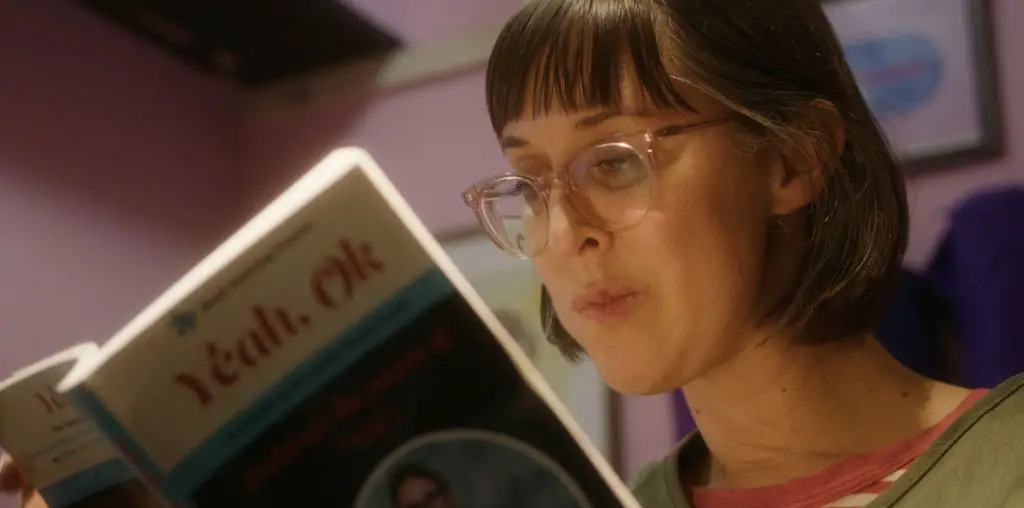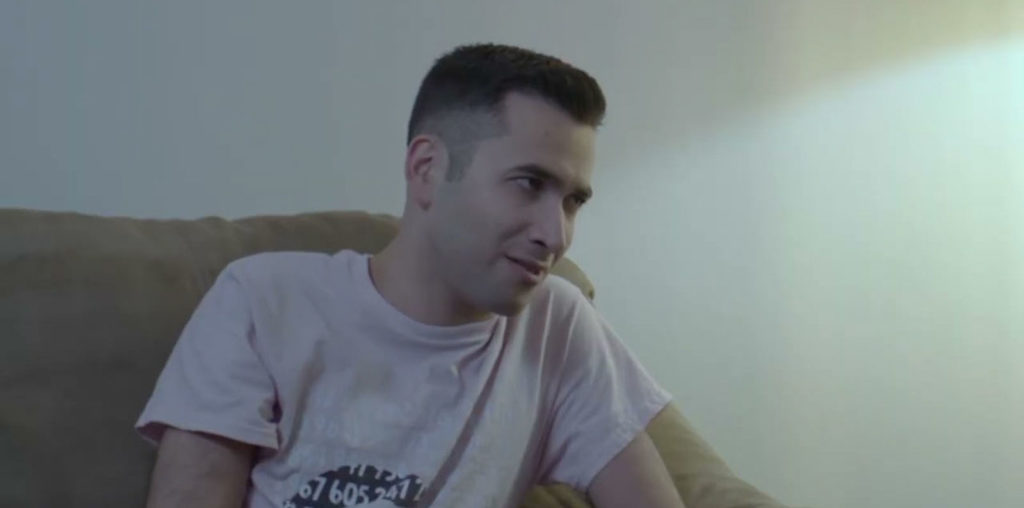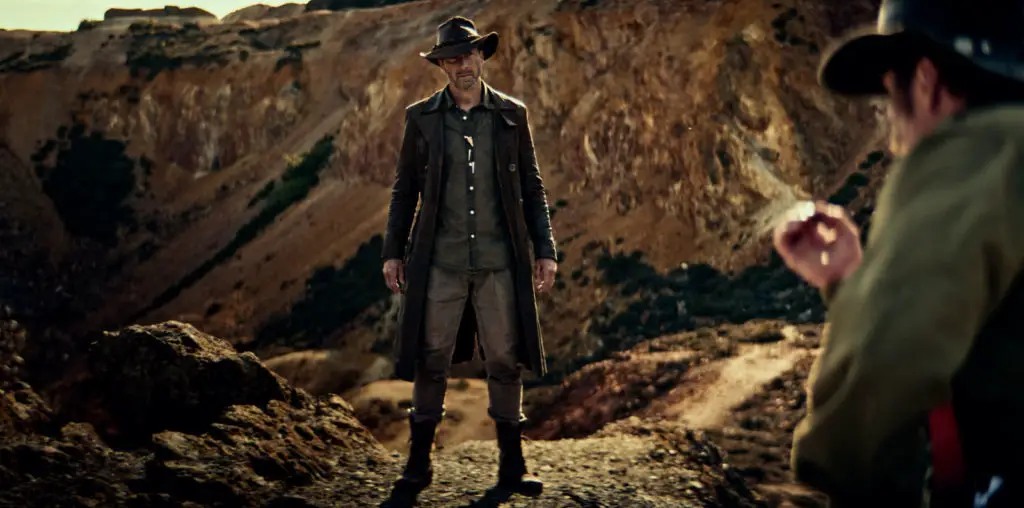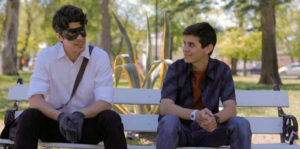
Time theory, psychology, and the importance of existing here and now are wonderfully explored in writer/director Federico J. Arioni’s impressive Nobody is Crazy, a film brimming with ideas and emotion.
Rafael (Manuel Gutierrez) is a young man struggling with OCD and his place in the world. After a meeting with his psychologist, he meets Nadie (Federico J. Arioni), a man sporting a black mask who claims to be a time traveler. Once these two souls meet, Rafael begins to understand more about his obsessions and place in the modern world.
The cerebral provocations of Arioni’s screenplay are finely tuned and find perfect balance with the humor and naturalistic tone. Nadie seems to have an affection for Martial Arts and the 1980s; the movie even references a few popular titles from that decade. He teaches Rafael about experiencing the moment by telling him of the 1984 pop culture classic, The Karate Kid. Nadie sees himself as a “Mr. Myagi” figure to the young man and seems to find joy in tutoring Rafael in life lessons. Beyond all his knowledge of the philosophers and life experiences, Nadie has a sweet soul fueled by a thirst for knowledge as big as his desire for human connection. Though it comes to pass that there is more to the enigmatic Nadie than Rafael realizes, these two souls couldn’t have met at a better time.
The introduction of Daria (Lara Ammi Wheeler), a beautiful and free-spirited young woman, gives the plot a romantic flavor that enhances Rafael’s askew coming-of-age tale. Daria enchants both men, and their time together speaks to the relationships audiences carry with them. This gives Nobody is Crazy a sweet spark, but it also becomes a catalyst for the engrossing final act.
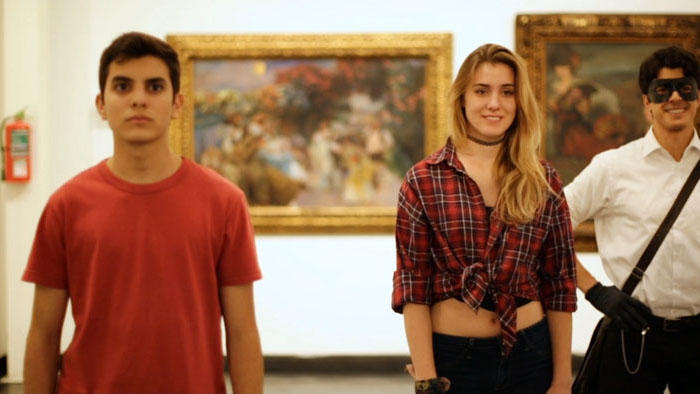
“…a man sporting a black mask who claims to be a time traveler.”
Arioni’s screenplay is full of life and the quest for it. He skillfully navigates the heady issues of the story but never overwhelms, presenting the themes in interesting and inventive ways. As a director, Arioni has a firm grasp on his material, staying clear of directorial flourishes by presenting Rafael’s life with a flowing yet patient camera. The filmmaker knows when to hold the frame, letting the actors and dialogue do the heavy lifting.
Adding to the naturalistic aura is Germán Salvador’s effectively understated score. With the choruses and piano in unison, the work is a blend of Ennio Morricone and Ryuichi Sakamoto. His compositions are used carefully and never overwhelm the dialogue. In some of the more emotional moments, the score slowly rises to become one with the scene’s potency.
By the time we get to the end of Nobody is Crazy, the literal and the metaphorical intersect, and for the attentive viewer, the realities of Nadie’s purpose become clear. As he explains to young Rafael, “Nobody can bathe twice in the same river. The river changes. And the people, too.” He wants the young man to understand that what we perceive can shape who we are, but in the reverse, how we view ourselves can color the way we see things.
There aren’t many movies that can make time travel interesting. There are even fewer that are interested in intellectually stimulating the audience’s mind. Federico J. Arioni’s Nobody is Crazy does both and does so exceptionally well.
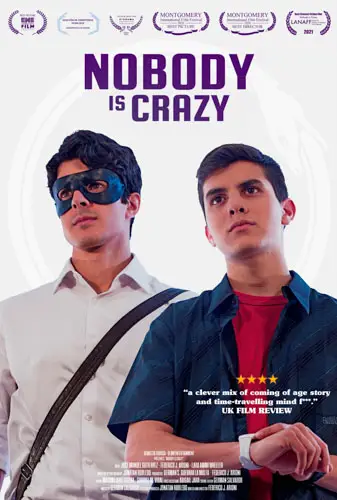
"…intellectually stimulating..."
